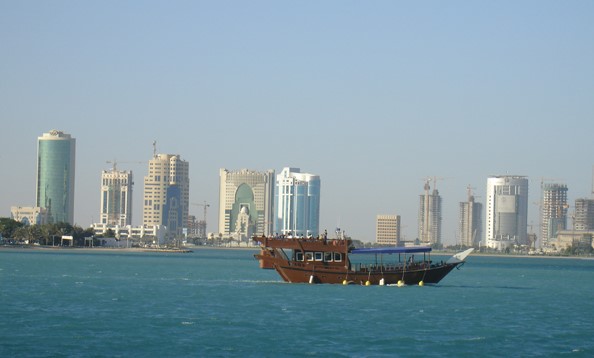With the approval of a new permanent residency law, Qatar may be set to become the first Arab Gulf country to significantly reform the legal status of its expatriate population.
The new legislation will reportedly allow foreign workers to obtain a permanent residency card which comes with several benefits. Cardholders will have full access to state-funded education and healthcare, be allowed to own property in Qatar, and be considered for jobs in the military and civil service. This new residency status is also said to afford expatriates the opportunity to purchase businesses. The most eligible applicants will be “children of Qatari women married to foreigners, people with special talents ‘needed by the state,’ and others who have extended notable services to the country.”
With the ongoing Saudi-led blockade adversely affecting Qatar’s economy, many expatriates working in the country have been considering opportunities elsewhere. Foreigners make up about 88 percent of the Qatari population, so a decrease in migrants would mean a smaller workforce to drive the economy. The permanent residency law incentivizes migrant workers to remain in Qatar, as expatriates are consistently denied legal status comparable to citizenship in the other Arab Gulf states.
Across the region, migrant workers are regularly subjected to abuse and exploitative labor conditions, including human trafficking and debt bondage. Unlike nationals, they are excluded from taking advantage of welfare services and are often denied adequate compensation for their work, forcing them to bear undue financial burdens. Migrant workers are also typically required to pay large fees to secure employment or to live in overcrowded and unsanitary residences. Migrants have little, if any, access to legal services and therefore have no effective way to seek remedy.
Although many Gulf governments officially claim to be working to address the exploitation of migrant workers, the authorities typically fail to enforce relevant legislation. In Bahrain, for example, the Labor Market Regulatory Authority (LMRA) previously introduced an initiative to grant migrant workers greater freedoms by allowing them to leave their employer – moving the country away from the abusive cycle of the kefala sponsorship system. However, Bahraini authorities did not provide enough guidance for migrants to transition to new employers and have largely failed to enforce other regulations meant to protect from kefala abuses. As a result, the system has remained largely intact. Although the government has recently launched a new self-sponsorship program that could see some success, it remains limited and also suffers from its own negative drawbacks.
The approval of permanent residency legislation in Qatar could pave the way toward greater protections for migrant workers in the Gulf. By giving expatriates access to many of the same benefits and opportunities that nationals receive, Qatar may be making a significant effort to improve lives of migrant workers. But approval of the legislation is just a first step. There must also be sufficient effort by the Qatari government to ensure that equal access is guaranteed. Adequate support must be provided to eliminate systemic problems like low wages, discrimination in hiring, and forced labor in order to properly protect the rights of migrant workers.
Navneet Gidda is an Advocacy Intern at ADHRB.





